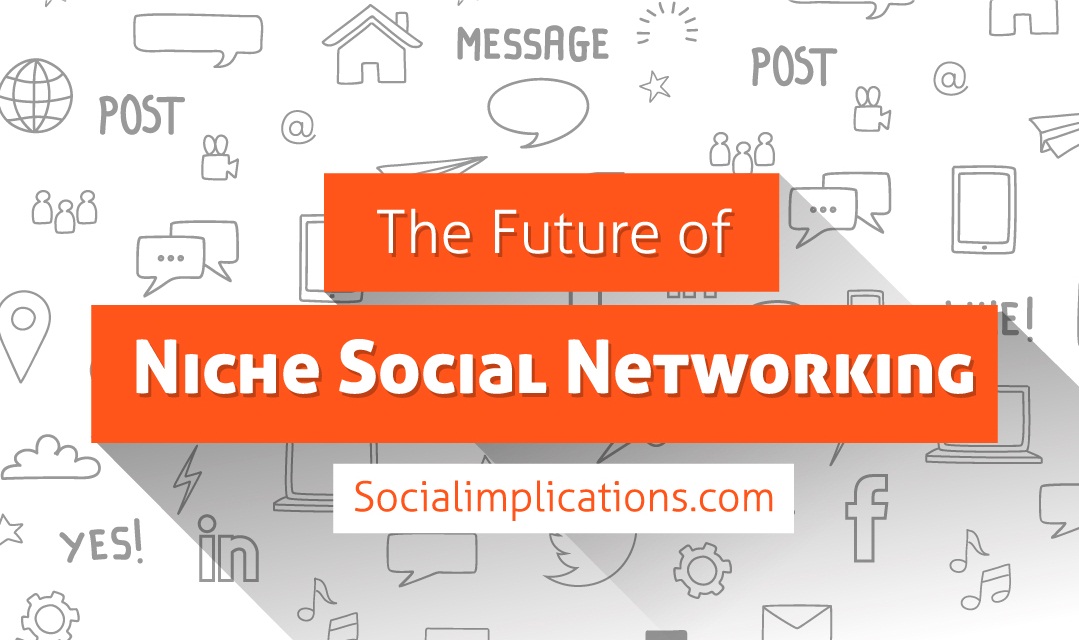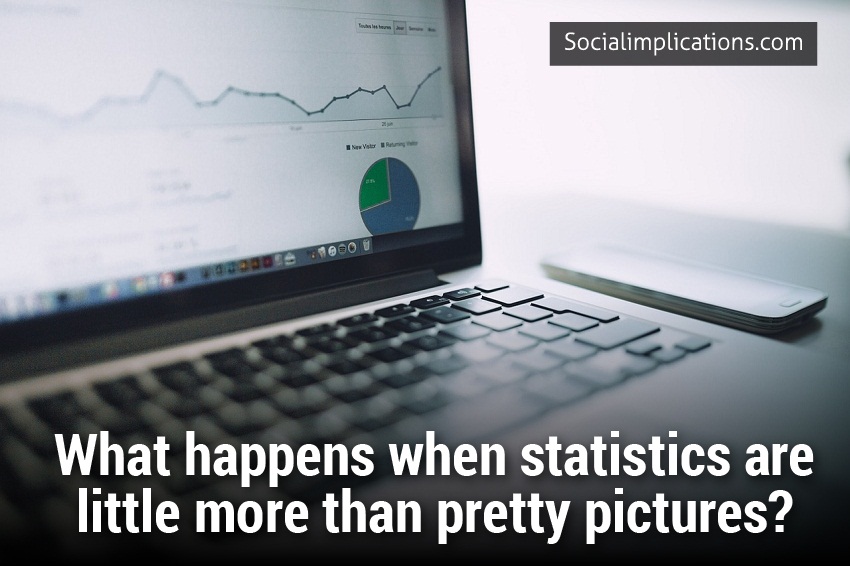There are a lot of people out there in the job market looking for work right now. And HR representatives have long since started looking to social networking profiles to learn more about job applicants. Can you blame them? With so many people available and applying for jobs, why wouldn’t they want to know as much as possible about applicants’ personalities before hiring someone?
Then again, a lot of folks aren’t all that cautious about what makes it to those public profiles. They don’t really think about anyone but their friends and existing networks looking at the information they post. So they post stupid things without thinking — things that could cost them their dream job. Already have a job? You’re not off the hook. You might find yourself back on the job market if you aren’t careful about what you post online.
Today let’s take a look at five things that probably shouldn’t be posted to your social networking profiles if there’s any chance at all you’ll be job hunting in the future. Don’t just assume you can delete things later. Remember, once something’s on the Internet it’s almost always cached somewhere or reposted by someone else. Anyway, let’s get to it!
-

Credit: BigStockPhoto.com Obscene or provocative photos — Unless you want to work as a model (or maybe in a strip club) no one needs to see provocative photos of you on social networks. Not only does this include scantily clad photos, but drunken photos are an even bigger no-no.
- Criticism of your current or past employers — If you bitch incessantly about your boss or a previous job, no one’s going to want to hire you. They’ll just be wondering what nasty little tid bits you’ll be sharing about them if things don’t work out. That’s not to say you should never say something, especially if you feel something was ethically wrong and you don’t plan to work with that company or ones like them again anyway. Just exercise some judgment on that.
- Confidential information — If you learned something and there’s a reasonable expectation of privacy, don’t share it. That goes for both personal things and sharing confidential information about your past employers. If you come across as a constant blabbermouth, you’re telling prospective employers that you can’t be trusted.
- Personal details — It’s not uncommon for social networking profiles to ask you to share anything from your body type to your sexual orientation. While no one should be discriminated against for these things, ask yourself if that’s one of the first things you’d want a prospective employer to know about you even before talking to you personally. If not, leave it out.
-

Credit: BigStockPhoto.com Controversial viewpoints —
You might be passionate in your religious or political views. But rest assured not everyone will share them, and if you want to succeed in your job search you’ll have to deal with people from all walks of life. Keep it to yourself, or at least amongst your real friends.
Already posted some of these things, or you don’t plan on stopping? There are other ways around the issue. These tips can help you keep your private information private and out of the hands of Human Resources personnel.
- Set your social network profile to private or friends-only.
- Don’t post photos or controversial remarks in comments on others’ public profiles.
- Only “friend” people you actually know so you don’t accidentally give an HR person access to your page.
- Set up a LinkedIn profile so there is a professional public social networking profile they can view.
- Similarly, consider setting up your own website or blog where you can build some attention in your niche or industry, share your resume, etc.
The most important thing when it comes to social networks affecting your job (or job search) is having the forethought to know that people can and will find them. Never make the assumption that something you post is private. Make sure it is.
Have your social network profiles cost you a job? Why? Does your company use social media profiles in recruitment efforts? In what ways? Leave a comment and tell us about it.














Well, seems like I am breaking all the rules. But screaming about yellow pages saturation and excessive executive compensation is so much fun……… lol. Maybe I should also lay off BP, just incase they need my SEO help? Lol.
Unless I’m misunderstanding something, you run your own SEO company, right? So you’re looking for clients; not employers. They’re extremely different things when it comes to what is and isn’t appropriate in social media. In attracting clients, a more personal approach and controversial views especially can lead to more work rather than less. Clients have a greater appreciation for your personality in many cases than employers do — they’re more worried about maintaining a corporate culture and finding people who will fit in and work well with their existing teams. If you work independently (as I do) you’re often brought in because you have something different to offer instead. In that case, feel free to break all the rules you want and do whatever works well for your target market. 🙂
Jennifer,
Just going thru my MajesticSEO links and came across the comment I left back in 2010. Your advice was spot on btw. I share my concerns about the economy, government, constitution, and SEO with clients and the trust me and engage in some really awesome conversations. So glad I left the corporate world that restricted my openness.
Keep up the good advice and I would love a guest post on my blog!
Instead of totally hiding all aspects of your personality consider this alternative.
Make two social networking profiles, one for employers and one for friends and family. Make the friends and family one under a nick name. NEVER share it with employers and NEVER friend people you don’t know. Now feel free to be yourself!
On the other profile represent yourself as if you are at work. You know , don’t “like” the legalize it fan page, post some photos of you in work attire, use your given name, etc.
There’s nothing dishonest about this. As humans we are multi faceted. We don’t let loose at work, we don’t go around telling other to “legalize it” we don’t drink too much or call or closest friends bad names where everyone can hear. BUT we do do these things at family picnics, at the club with friends etc.
texxs – Nice idea in theory, but it’s not necessarily going to work. Just because you use a nickname, it doesn’t mean others won’t tag photos and such with your nickname and real name. It’s unlikely you’d be able to completely disassociate your real name from a profile without actually being dishonest somewhere along the line. And frankly, if you wouldn’t want people seeing something, you shouldn’t be posting it publicly under ANY name. Anything else would be downright foolish. Family picnics, at the club with friends, etc. are limited exposure activities. And if you want to treat social networking as even close to similar, then you do have to worry about keeping things private.
yes, almost all companies check for social profiles before giving the appointment letter these days, however i think if someone is a bit more careful in adding friends, this situation can be avoided. i never add anyone whom i don’t know personally into my friends in social networks where am a bit more myself 😛
however on professional networks, i present my better self untruthfully 🙁 and i don’t care who checks it out because am too good to be true there.
I doubt “almost all” companies check social network profiles before hiring yet. A lot of companies are still struggling with the basic concepts of social media for business use. In the future I do think that will be true though, and given that nothing on the Web is ever guaranteed to be completely gone it’s a good idea to prepare for that by being a bit more discriminating about what we post today.
Just remember that people who use Xobni, an add-in for outlook, will automatically see your profile picture if you email them using an account attached to facebook or linkedin. My husband received a resume the other day. The grammatical errors coupled with the picture of the drunken candidate holding a beer did not make a good first impression, and may cost him the chance to make another one.
LOL You know… I’m just not the kind of person who would post things like that, regardless of who I think is looking at my profiles. I can’t imagine anyone thinking that’s a good idea in the first place. But thanks for bringing up the Xobni issue. Another thing worth keeping in mind!
Kristi Hines mentioned that this post was the hottest post on Sphinn today. That doesn’t surprise me because so many people don’t seem to have a clear understanding that anything that exists digitally could be made public at any time.
Instead of posting potentially embarassing photos or information “privately” it would really be more prudent to not share it at all with anyone. It is not possible to control what others do – and many others in your life will delight in posting your most unattractive photos online.
Eventually people are going to have to be more tolerant of the “short-comings” of others because there will be far too much information available on everyone not to be. I found that to be true offline in small towns. Everyone knew much they chose to forgive and overlook because what choice is there when there are only so many other people around? They couldn’t just find new friends or neighbors the way someone in a big city can.
What many of us do not realize is that what we find acceptable and what may be socially acceptable to others can be very different. What was taboo when I was young is now mainstream. Public advertisements, television and movies now show what would have once only been seen in a seedy adult peep show somewhere. My point is that just because it is everywhere does NOT mean it is suitable behavior.
In a society where almost anything goes, it would be wise to consider where to draw our own moral lines and to decide who we want to associate with and what we are willing to accept around us. That line can decide where you end up working, too.
The media has had far too much influence on too many. There are companies that sell employment pre-screening tests that effectively identify those who would steal from the companies they work for (among other things). Apparently, most thieves are not smart enough to lie on the tests or do not see anything wrong in admitting that they would take whatever they wish from their employers.
What is acceptable to each of us should be based on what we believe and not conditioning we have allowed into our minds by others.
🙂 Thanks for letting us know Gail. I saw your mention about that the other day on Twitter.
And you’re right. There’s definitely a misunderstanding when it comes to privacy online. Very little (if anything) is truly private online. Even if you make it private on your own profile, there’s nothing stopping someone else from sharing and tagging similar photos (taken at the same drunken event for example), and NOT making it private on theirs.
If you do something stupid in a public place, don’t be surprised when other people see it. The same goes for the Web.
I disagree with every one of those. I say be yourself, speak your mind, and maintain a level of respect while getting your points across.
*No matter how well you do something, if you do it in a boring fashion, NO ONE CARES!
After work today I plan on going home to smoke a fat joint and do some SEO research on domains.
Congratulations for being a case study on exactly what people shouldn’t do (or at least brag about online) if they’re in the job market. Always up for illustration. 😉
BTW I do not disagree with not sharing private information, I do disagree with all of the other ones though, as long as you research what you are saying and have proof to back it up, speak your mind.
I hate the corporate world for putting on a face for Mon to Fri and than going home on the weekends and acting differently. Be yourself every day.
How can you say you agree with not sharing private info when you comment on a blog about going home to smoke a joint?
It also has absolutely nothing to do with researching what you’re saying and “backing it up.” We aren’t talking about debates here. We’re talking about personal interaction with others online.
And frankly no one’s said anything about not being yourself or having to put on a face M-F. But if “yourself” is an ignorant ass with no self-respect or respect for others, and that shows through on your profiles, don’t be surprised when you don’t get a job. In that case you’d better be prepared to go into business for yourself (in which case the suggestions here really don’t apply, because it’s a VERY different situation). Not all people are cut out for that though, and for those who do have to rely on employers, like it or not they’d better be ready to play that game.
Good thing I’ve already made my facebook page as private as possible!!
I figured my facebook page is personal while twitter and linkedin is a free for all. So far so good, its working for me.
I definitely agree with you on all counts, the Internet is a largely small place, it’s better to be safe than sorry, that’s what I think! Speak your mind, but be professional about it, after all, you never know who will see/read it.
You’re right. There’s absolutely nothing wrong with speaking your mind. It’s all about having self control and know what are (and aren’t) appropriate forums for what you want to say at the moment. Having your own profile private is a good start. Make sure you keep an eye on those belonging to friends though just in case something you feel uncomfortable about slips through. You can always ask them to remove it if that happens (although there’s nothing forcing them to). My policy tends to be “don’t do anything you wouldn’t want shared online in the first place.”
I think by the time people in their late teens to twentys start to worry about this kind of stuff, the types of decisions makers who would completely judge someone based off of their social media profile alone will hopefully be dead or retired. The ones that are still alive will probably have their lunch eaten by more forward thinking whipper snappers.
Hold on now. Before anyone jumps into an age-ist mentality, remember that it’s the “forward thinking” types who are the ones turning to social media when reviewing job applicants in the first place. The information people look at will clearly change over the years. But it would be naive to think that anyone in an HR capacity would go out of their way to ignore or dismiss information practically handed to them. Someone’s fit in a corporate culture is as important to some as their credentials, and for good reason. So don’t assume this is an older folks issue, where a generational divide will naturally lead to more privacy. No one is going to have privacy in this sense unless they actively pursue it and stop running their mouths so much publicly about all of life’s little indiscretions.